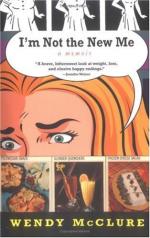“If Hardin and I stood precisely equal—that is, if neither of us had been to Congress, or if we both had—it would not only accord with what I have always done, for the sake of peace, to give way to him; and I expect I should do it. That I can voluntarily postpone my pretensions, when they are no more than equal to those to which they are postponed, you have yourself seen. But to yield to Hardin under present circumstances seems to me as nothing else than yielding to one who would gladly sacrifice me altogether. This I would rather not submit to. That Hardin is talented, energetic, unusually generous and magnanimous, I have, before this, affirmed to you, and do not now deny. You know that my only argument is that ‘turn about is fair play.’ This he, practically at least, denies.
“If it would not be taxing you too much, I wish you would write me, telling the aspect of things in your county, or rather your district; and also send the names of some of your Whig neighbors to whom I might, with propriety, write. Unless I can get some one to do this, Hardin, with his old franking list, will have the advantage of me. My reliance for a fair shake (and I want nothing more) in your county is chiefly on you, because of your position and standing, and because I am acquainted with so few others. Let me hear from you soon.”
[Illustration: HENRY CLAY.
From a carbon reproduction, by Sherman and McHugh of New York City, of a daguerreotype in the collection of Peter Gilsey, Esq., and here reproduced through his courtesy.]
Lincoln followed the vibrations of feeling in the various counties with extreme nicety, studying every individual whose loyalty he suspected or whose vote was not yet pledged. “Nathan Dresser is here,” he wrote to his friend Bennett, on January 15, 1846, “and speaks as though the contest between Hardin and me is to be doubtful in Menard County. I know he is candid, and this alarms me some. I asked him to tell me the names of the men that were going strong for Hardin; he said Morris was about as strong as any. Now tell me, is Morris going it openly? You remember you wrote me that he would be neutral. Nathan also said that some man (who, he could not remember) had said lately that Menard County was again to decide the contest, and that made the contest very doubtful. Do you know who that was?
“Don’t fail to write me instantly on receiving, telling me all—particularly the names of those who are going strong against me[9].”
[Footnote 9: This letter, hitherto unpublished, is owned by E. R. Oeltjen of Petersburg, Illinois.]
In January, General Hardin suggested that, since he and Mr. Lincoln were the only persons mentioned as candidates, there be no convention, but the selection be left to the Whig voters of the district. Lincoln refused.




